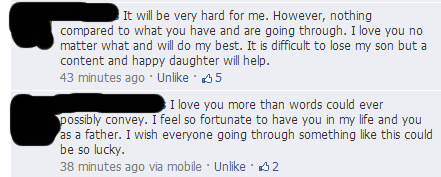[Content note: ableism, discussion of other axis of oppression, and links leading to slurs connected to them]
[Author’s note: This was originally posted on a different blog shortly after Fincke wrote his Civility Pledge. The post has been updated, but is largely the same one I posted in 2013]
Dan Fincke of the atheist/philosophy blog Camels with Hammers has a civility pledge. A lot of it is completely fair and how we would hope people would behave. In fact, on my first read-through, I didn’t really see anything that I objected to. I try to be charitable, patient, and kind when I disagree with people, so this fits the way that I attempt to go about things anyway. It is a lengthy post and Dan put a lot of thought into it. I can’t address every single thing in the pledge, but I will share some of my thoughts and criticisms of the goal.
When I think of an uncivil person, the first one to come to mind is that of my close friend, Kassiane. Kassiane is not polite. If you say something sexist, racist, or ableist she calls you on it–harshly. It is that bluntness that has helped me realize some of the harmful things I used to do, such as using “retarded” as synonymous with “bad.” You can make a long, polite syllogism about why ableism is bad, but sometimes you need to have someone tell you to fuck right off in order to call attention to the harm that such behavior causes. If Kassiane had been civil when she corrected my behavior, I may have mistaken it for a harmless difference in opinion and continued being a asshole. I don’t want to be coddled. I want people to take me out of my comfort zone. It is painful at times, but if I am hurting someone, I want to know about it in no uncertain terms.
Privilege is difficult to see if you are the one possessing it. When you’ve lived your whole life with the benefits that privilege bestows, it is not easy to understand how easy you have it.
I can’t accuse Dan of being completely oblivious to this issue though, as he does address privilege and marginalized people on point five:
I commit that I will go out of my way, if necessary, to remember that members of traditionally marginalized groups and victims of abuse have experiences that I may not have and which I may have to strain to properly weigh and appreciate.
The main problem I have with that at face value is that marginalized groups dealing directly with Fincke by and large do not report that he makes the effort to understand their point of view, and often enforces his civility rules selectively. Perhaps this is unintentional on his part, but this trend has been noticed enough that many former friends and readers of his have taken issue with it.
Uncivil criticism, at least with me, helps to break the spell of privilege. The benefit to the recipient of vitriol is not usually appreciated when we discuss civility. We’re used to seeing venom spewed forth by bullies, so it’s easy to forget that sometimes it can help people wake up. Of course, the response to that is, “Why can’t they just ask people to improve nicely?” Sometimes they do. An awful lot of activists have poured their heart and soul into holding privileged people’s hands in an attempt to educate them. It can be done. But you have to have either a lot of patience or be lucky enough to belong to a group that isn’t routinely ignored.
Dan might have had good intentions with this pledge, but intention is not magic, and calls for civility often have a way of silencing people who need to speak out. Not only with marginalized groups on a societal scale, but also within the various subcultures. For a long time before sexism was the internal focus of the secular community, tone was. And the arguments never came down to a substantive disagreement on the facts, but rather a distaste with how the facts are delivered. And calls for the abrasive types to just shut up already. While I’ve grown to despise Dawkins’ racism and sexism, his book The God Delusion is one of the reasons I started caring about skeptical activism as a goal. His tone helped me realize that sometimes we have to address injustices with abrasiveness.
I’m not convinced such a pledge actually improves the nature of our disagreements. I think it’s more likely to hinder it if our goals involve actually helping other people. I try to remain civil as a personal guideline, but it’s clear to me that this is a luxury that not everyone has and it won’t always get the job done.
Beyond the practical scope of civility as a tool, I’ve grown to fully distrust calls for it. It is almost always someone with power telling someone without power to shut up. All you have to do it look at any criticism of the Black Lives Matter movement to see this effect in action. “Want to be treated with dignity and respect. Then speak softly while I listen to your oppressor yell at you.”
I will not sign on to any such pledge, I will not enforce any calls for civility as a rule, and I will call bullshit when others do.




